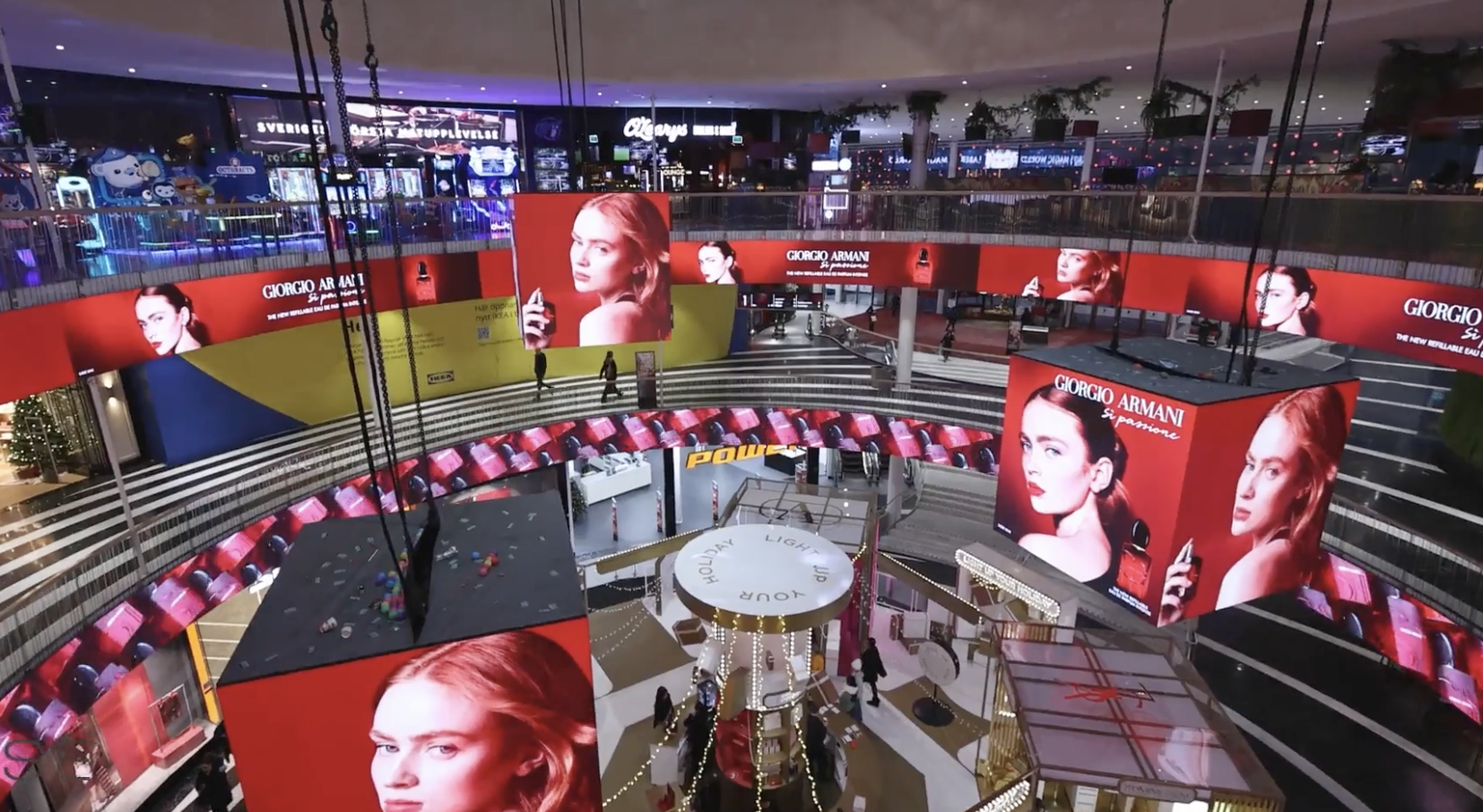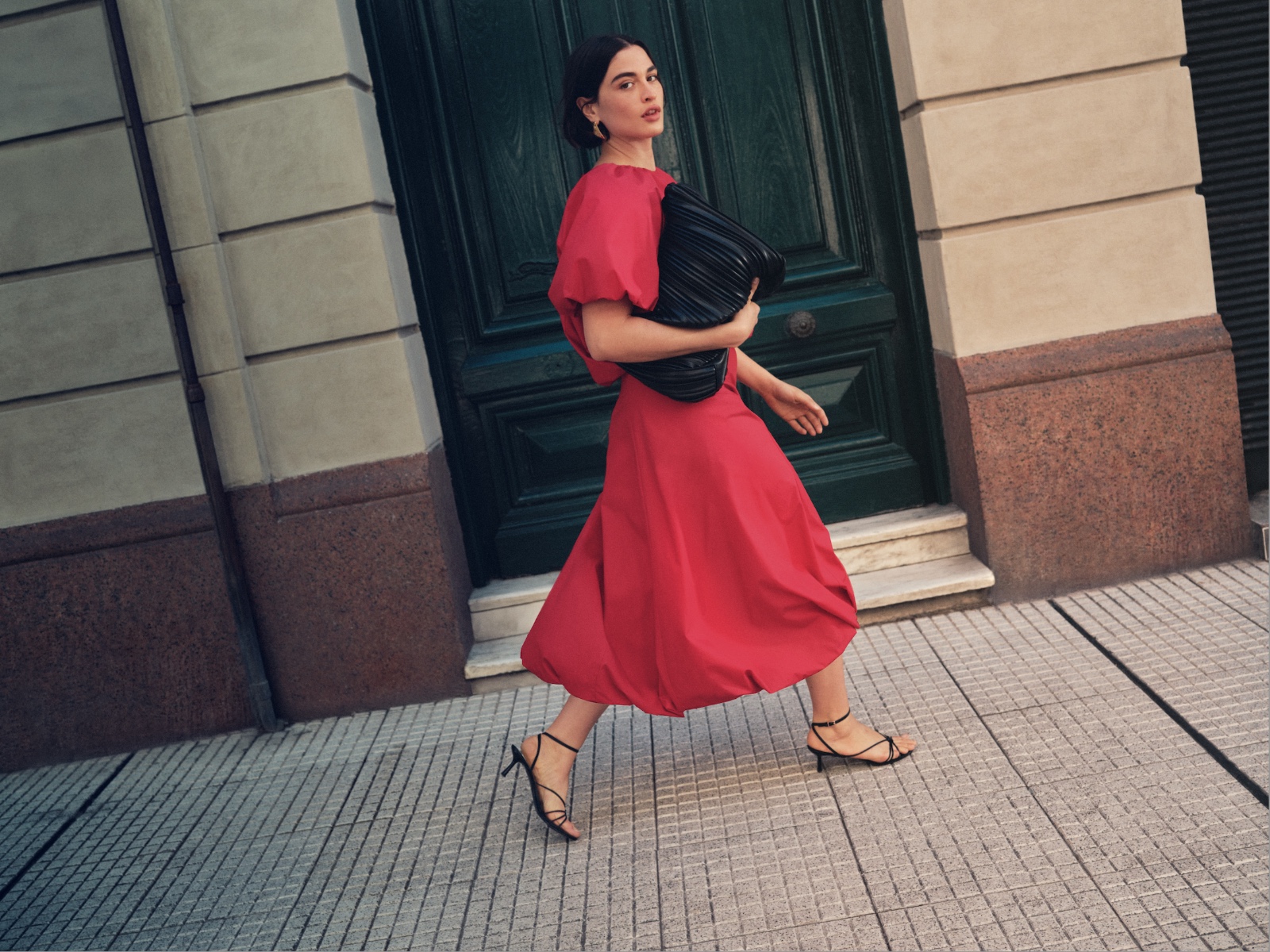Studio Retail says its customers seem to be shopping “more selectively” in the run up to Christmas, and that both inflation and pandemic seem to be factors. The retailer spent more to build stocks ahead of peak trading, and is also paying more in wages in the light of skills shortages. But it seems that shoppers may be holding back as prices increase generally – and Studio itself says those extra costs mean that it is likely to raise its own prices next year. It has lowered its full-year profit predictions accordingly.
At the same time, it says its mobile app and its flexible credit offering are proving useful in helping it to retain customers. A quarter of first-half group sales at the pureplay retail group came via the Studio app, while shoppers with a credit account tend to buy again when they visit to pay their bill.
The update came as the retail group today unveiled group revenues of £239.6m in the half-year to September 24. That’s 3.2% up on the same time last year. Spending per customer rose by an average of 11% over the last year, to an average of £189 in September 2021.
Pre-tax profits of £26.5m were 67% ahead of last time. Studio Retail sold Findel Education for £30m, in April 2021, enabling it to focus fully on retail. Looking ahead, the retail group now expects full-year adjusted pre-tax profits to come in at between £35m to £40m, down from a previous prediction of between £42m and £45m.
Paul Kendrick, Studio Retail group chief executive, says: “I am pleased with how the business has built on the success seen during FY21 in delivering a solid trading performance in the first half of the year. There are undoubtedly more near-term headwinds for all retailers, but we are confident that the proactive decisions we have taken will leave us well placed to navigate these. We continue to focus on our strategy set out in June, and our objective remains to drive growth with Studio’s outstanding digital value proposition for its customers at the forefront. We remain confident in our medium-term targets.”
Peak planning – and the supply chain
Planning well ahead of peak helped Studio to a “strong stock position” by the end of September. Early in the summer it used its in-house sourcing office in Shanghai to gain stock, while using both contracted container shipping and extra charter ships to transport goods.
Shipping costs have risen and this, says Studio, will lead to rising prices in the future. Added to this, the retailer says it has seen lower availability of staff to take temporary roles over Christmas. However, it has improved peak season wages and is now in a position to meet the demand it expects over Christmas. It now expects wages to increase in its next financial year as a result both of inflation and national living wage increases.
Studio makes around 40% of its full-year product sales in the Black Friday and Christmas third quarter of its year. It says that so far seasonal ranges have sold well, but ladies clothing is among the categories that have traded slower than expected until the last two weeks. “Our impression,” says Studio Retail in today’s statement, “is that customers are shopping more selectively this year given inflationary pressures and the recovery from the pandemic. The supply chain challenges have added cost and gross margin pressure that has only partially been mitigated through pricing.”
The strategy
The retail group has a three-pronged strategy, offering value to attract customers, offering product choice to increase spend per customer, and payment choice.
The retailer won new customers during the pandemic, as shoppers moved to buy more online, and at the end of its last financial year, in March, had 2.47m customers, including 1.53m who had an active credit account, won primarily through digital and TV advertising, supplemented by a catalogue. By the end of its latest half-year, at the end of September, it had 2.35m customers, including 1.46m with an active credit account. Now the challenge is to encourage customers to stay with the business – and the retailer says that offering credit and having a mobile app are proving effective.
Around a quarter (25%) of sales in the first half of its financial year came via the Studio App, which has been downloaded onto 1.2m customers’ mobile phones, of whom almost 900,000 enable push notifications. This, says Studio in today’s half-year figures, has proved “a low-cost route to bringing customers back to our shop”.
The group, which primarily trades through the Studio website, also says its flexible credit account is a key way to bring shoppers back to its shop since it keeps 70% of customers who pay via credit, rather than by cash (20%). About 8% of shoppers who come onto the app to make a monthly repayment buying again at the same time.
Studio is ranked Top350 in RXUK Top500 research.









